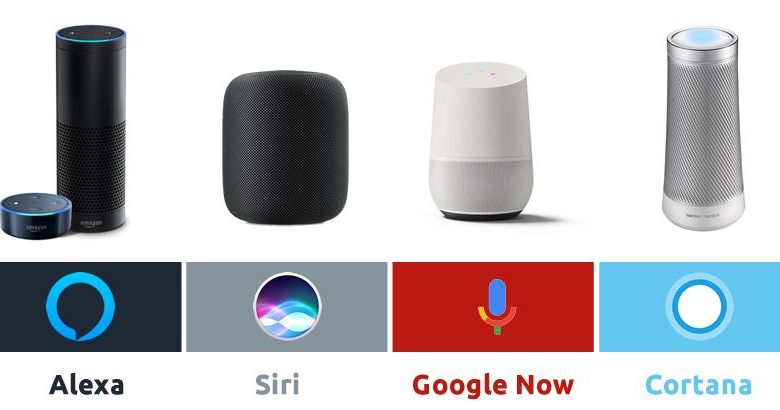Siri, Google Assistant or Alexa: who is the best AI assistant?

Talking against technology is on the rise, and that is of course due to the increasingly smart speech assistants that are frequently popping up in laptops, speakers, television sets and cars. Time to take a closer look at the 5 most important ‘smart assistants’, on the device where they first appeared: the smartphone.
On iPhone: Siri
The oldest voice assistant appeared in Apple’s iPhones in 2011 and has experienced remarkable growth in artificial intelligence in the last eight years. Because that is something that many users forget: they are always getting better and better, those Smart Assistants, because there is a so-called self-learning system behind it.

That is currently still in AI labs of technology companies, but the ‘wash out’ on users’ smartphone is continually being provided with new features. Like Siri, for example, recently the ability to recognize the voice of multiple users. IOS 13, the upcoming new version of Apple’s operating system for iPhones, will also include an update that makes Siri’s way of speaking less ‘computer-like’.
On Android smartphones: Google Assistant
Google’s Assistant is younger than Siri: he only appeared in 2016. But it is possible that this app has experienced the most significant growth. That’s because Google took over DeepMind a few years ago, a British AI company that had such reliable artificial intelligence that the American giant spent $500 million on it.

DeepMind is not directly connected to Google Assistant, but regularly new features pop up that do come from the company’s AI labs. Google Assistant has become particularly active in correctly recognizing spoken language: for example, if he reads a recipe to you while you are cooking, you can quickly go one step ahead or back, or ask what the next ingredient should be.
On everything: Amazon Alexa

In the United States, Amazon’s AI is the market leader for smart speakers in the home, but with a separate app, it is also available for both iPhones and Android devices. Alexa is most influential in conducting conversations, and that is also what Amazon’s AI labs are focusing on. Alexa is also in cars from a whole range of brands, so that the speech functions that the user has at home can also ‘travel’ further on the road.
On Samsung products: Bixby
Samsung introduced its own voice assistant Bixby on the Galaxy S8 smartphone in 2017, and since then Bixby has also appeared on other devices of the company. There are already apps that use Bixby’s capabilities, but for the time being the voice assistant is mainly focused on using the device itself. For example, to operate the camera with speech, or to recognize things in your environment with Bixby Vision. Convenient is the separate Bixby button on the devices.
On Windows laptops: Microsoft Cortana
We should not forget Microsoft’s smart assistant. Cortana was initially a character from the Halo video game series, who regularly appeared as a hologram to advise the main character in that series. Cortana’s voice and image were then transported to Microsoft’s smart assistant that Microsoft introduced in 2014 on his Windows Phones.
The latter have meanwhile perished without fail, but Cortana remained: it is a feature in Windows 10. Behind the scenes, Microsoft continues to build on Cortana: recently it took over Semantic Machines, an American AI startup, to tinker with the conversational skills of Microsoft’s smart assistant.




